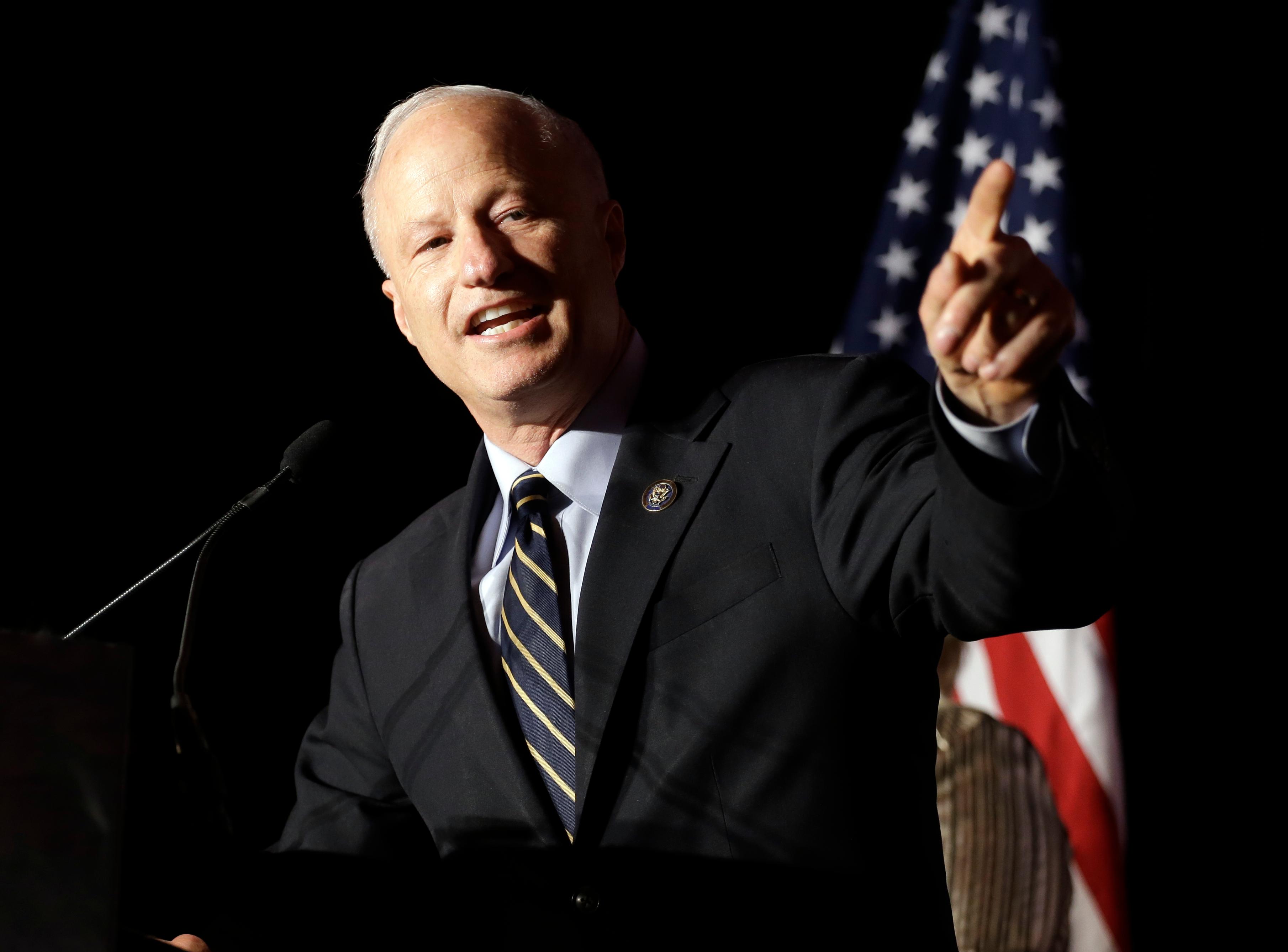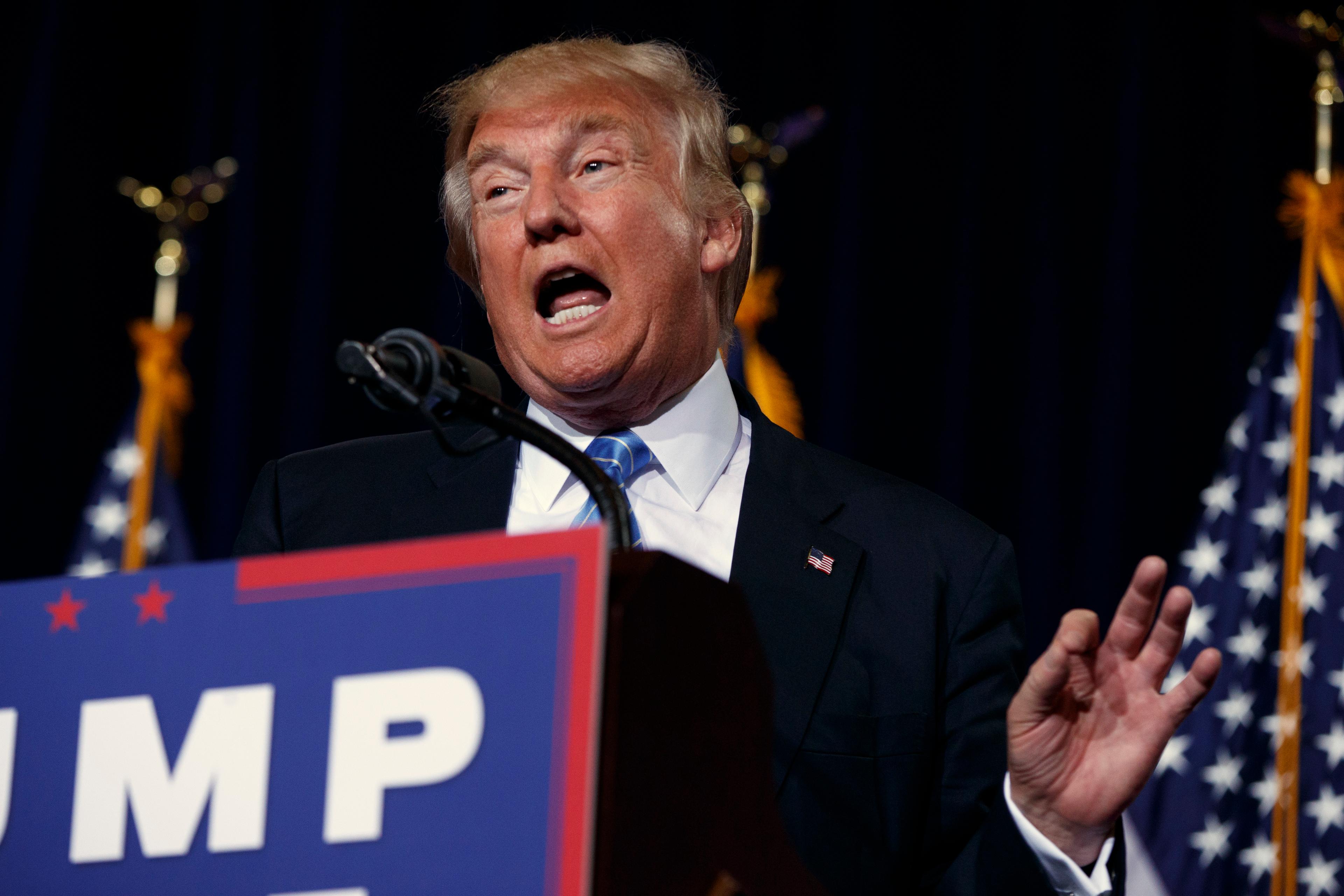
Updated Sept. 5 -- President Donald Trump said on Tuesday he wants to end protections against deportation for children brought to the United States by parents who entered the country illegally. The Deferred Action for Childhood Arrivals, or DACA, was created by executive action during the Obama administration.
On Friday, before the president's decision, Colorado GOP Rep. Mike Coffman told Colorado Matters he has a different proposal: He wants to force Congress to vote on what's known as the BRIDGE Act. The measure would give the force of law to the deportation protections established by DACA, which was created by executive order five years ago during the Obama Administration.
"I don't think it's constitutional just to do it through an executive order. I think it has to be done through the Congress," Coffman told CPR News on Friday.
"What the Bridge Act does is it gives a three year extension of the DACA program. In those three years it's up to Congress to make a determination as to what a permanent solution is," Coffman said. "That's more than enough time to figure out the immigration reform piece. And so that's what I've done. And then when I head back on the 5th of September I will do a discharge petition to force that for a vote."
A discharge petition is a rarely-used procedural end-run around legislative leaders. If more than half of the House signs on, the BRIDGE Act will come up for an immediate vote, without going through a lengthy committee process.
Coffman says he's reached out to Speaker Paul Ryan and other House leaders as a courtesy but "I wasn't asking permission to do it, I was telling them what I'm going to do. The pressure has to be there."
The congressman may not find much opposition though; during an appearance on a Wisconsin radio station, Speaker Ryan said he hopes the president will hold off on a decision on DACA and give Congress time to act.
DACA allows some undocumented immigrants who arrived in the country as children to get renewable, two-year deferrals from deportation and work legally, so long as they are enrolled in or graduated from high school or college and pass a background check, among other things.

Presidential candidate Trump said he would "immediately terminate" DACA is he won office. Now as president, he's sent a different signal. "It's a very difficult thing for me," he said during a February 2017 news conference. "It's a very, very tough subject. We're going to deal with DACA with heart."
Politico reports the BRIDGE Act covers a lot of the same legislative territory as DACA. It protects from deportation anyone born after June 15, 1981, who was brought to the U.S. before they turned 16 and have lived in the U.S. since June 15, 2007. To qualify, applicants must be free of any criminal records, would have to be enrolled in school, or have graduated from high school, or have served honorably in the military.
Coffman said he likes the bill's chances.
"If Democrats hold, there are enough Republicans to put it over that 218 threshold to pass and get into the Senate. I think there's support there is in the Senate and I think we'll get it to the president. I believe the president would sign it," he said. "There's a lot of anxiety particularly in the Hispanic community. These are children, young people, that really played by the rules. I mean they could have hidden in shadows you know like some of their contemporaries but they came out of the shadows to register with the federal government. And it is just this tremendous amount of anxiety about not knowing what the future is."
Trump's announcement, and Coffman's push, are all coming to a head now because 10 states' attorneys general have given notice that they intend to challenge DACA in court if the White House doesn't abandon DACA by Sept. 5. Those AGs all believe that DACA, created by executive order, is unconstitutional.
Read the full transcript:
Ryan Warner: Congressman welcome to the program. Congressman Mike Coffman: Thanks for having me. RW: I'd like to start with just a quick series of yes or no questions to help people understand your position on DACA. So first off, yes or no: you believe that people currently protected as Childhood Arrivals should continue to have that protection. MC: Absolutely. RW: OK. Those who are applying for it, DACA, right now should they continue to be able to apply with the idea that the program is preserved. MC: Well I mean I'm for the continuation of the DACA program so let me put it this way. I sponsored The Bridge Act at the beginning of the year. And what the Bridge Act does is it gives a three year extension of the DACA program. In those three years it's up to Congress to make a determination as to what a permanent solution is. And I think in those three years that's more than enough time to figure out the immigration reform piece. And so that's what I've done. And then when I head back on the 5th of September I will do a discharge petition to force that for a vote. RW: Let's talk about this discharge petition. The rules in the House and the Senate can get positively Byzantine but the idea here is to discharge with the committee process and to force a vote on the floor of this Bridge Act that you talk about, extending DACA. Do you have the votes to do it? I think you need a majority, correct? So there would have to be Republicans voting for this, not just Democrats with you. MC: Absolutely. If Democrats hold, there are enough Republicans to put it over that 218 threshold to pass and get into the Senate. I think there's support there is in the Senate and I think we'll get it to the president. I believe the president would sign it. RW: So you believe that there needs to be really a legislative solution to this because it was handled through executive order. Is that what I hear you saying? MC: Oh yeah. I think that, I don't think it's constitutional just to do it through an executive order. I think it has to be done through the Congress and the court has said as much when striking down the DAPA program that was also done by executive order. The differences are the DACA program is already in place and has been in place for quite some time. RW: The DAPA is Deferred Action for Parents of Americans, that other program you mentioned. So do you think that you'll have to do this maneuver? I read that Speaker Ryan actually went to the president and said hold off on making a DACA decision. Do you have to do an end run around him do you think or what? MC: Well I've given a courtesy call to the [unintelligible] leadership and Republican leadership and said if the speaker of the majority wants to talk to me, the leader wants to talk to me, I'd be happy to talk to them. But this is what I'm going to do so I wasn't asking permission to do it, I was telling them what I'm going to do. The pressure has to be there. Essentially it's not just the president, it's really the Attorney General for the state of Texas that would have to back down and he has in his letter that he sent to Jeff Sessions, the Attorney General for the United States, nine other Republican Attorney Generals signed onto that. So you know it's not just the president that really needs to, the president has no desire to terminate this program. It's really the specter of raising the constitutionality of it [inaudible]. RW: Right, by states Attorneys General, these ten states. Your district is the most ethnically diverse in the state, has a large foreign born population including many undocumented immigrants. How much have you been hearing from constituents on this issue? MC: A lot. There's a lot of anxiety particularly in the Hispanic community. These are children, young people, that really played by the rules. I mean they could have hidden in shadows you know like some of their contemporaries but they came out of the shadows to register with the federal government. And it is just this tremendous amount of anxiety about not knowing what the future is. RW: Congressman, earlier you said that the Bridge Act is a way of buying time really so that Congress can address comprehensive immigration reform. And you seem to have little doubt that three years would be enough time to accomplish that. And yet it's been gosh, decades that the country has been talking about changing its immigration system and has been unable to do so. What gives you confidence that three years is long enough to crack this nut. MC: Well there has to be a deadline to put pressure on the Congress to act. And it's not necessarily comprehensive immigration reform although I think that would be good. This is about finding a permanent solution to deal with these young people who are participants of the DACA program. Even it's a legal status, a temporary legal status it's really sort of a grey status because there's a lot of things that they can't do. I had a DACA recipient recently wanted to go to the United States Naval Academy, graduated at the top of her class. But her parents took her here illegally when she was just one year old from Mexico. She really doesn't know anything about Mexico. She grew up here. She went to school here. I think she ought to be able to serve the only country she's ever known. And so we, that's not a part of DACA. That has to be part of a permanent solution. Her DACA status will not let her go to the United States Naval Academy, let alone enlist in the military. RW: Got it. So it could be that this buys more time for a more targeted solution or perhaps a broader one. Congressman thank you for being with us. MC: Thank you for having me. I really appreciate it. |
CPR's Ryan Warner, Hart Van Denburg and Megan Verlee contributed to this report.







